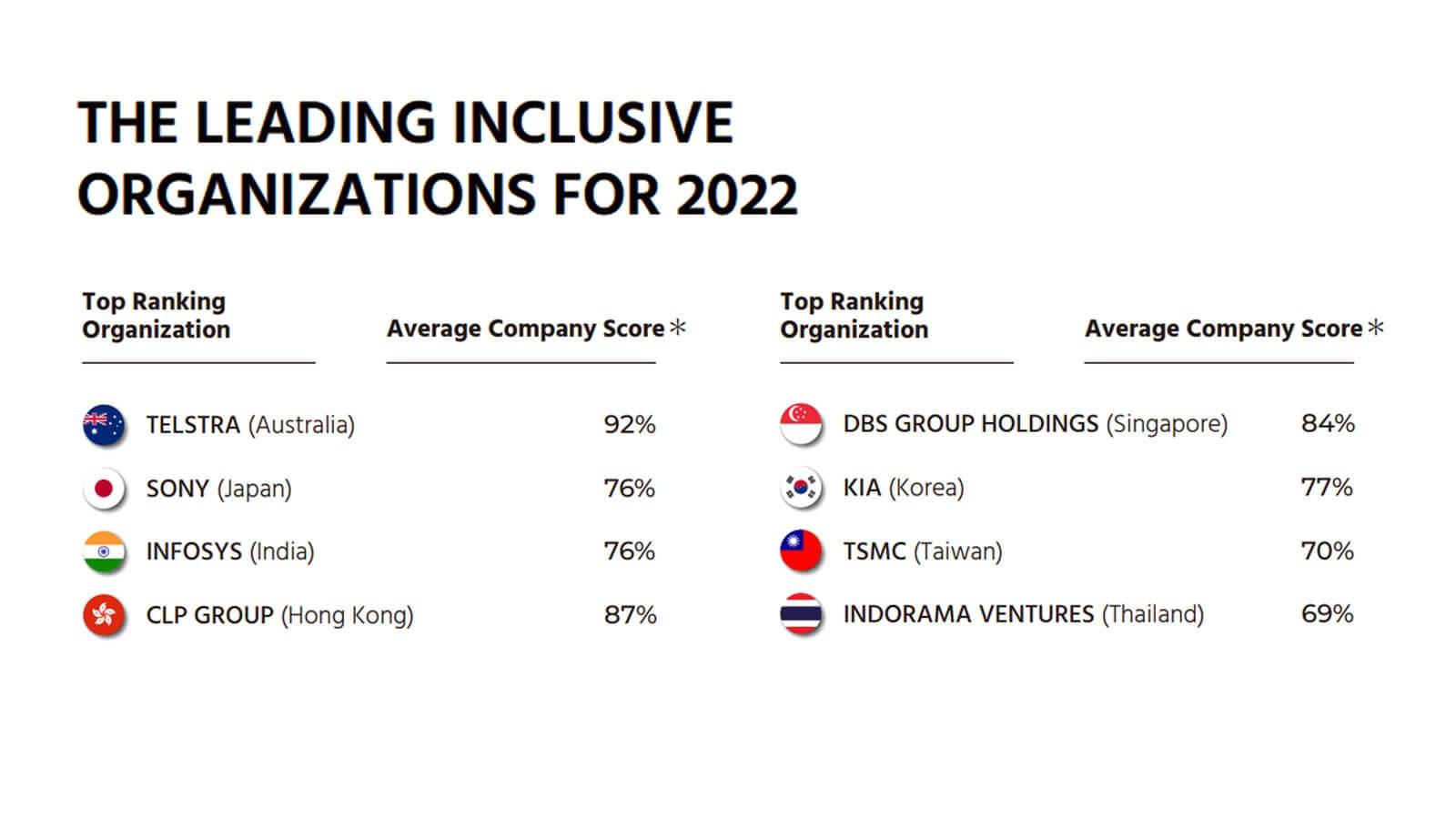Diversity, Equity, and Inclusion (DEI) efforts have gained significant traction globally and in APAC, organizations are, in many ways, writing the “inclusivity playbook” for the rest of the world to follow.
Equality Group, supported by Equilibrium, examined nearly 150 leading companies in nine APAC nations to understand the key nuances when it comes to inclusion and to recognize top organizations across the region. Here’s how the top-ranking organizations move the needle on inclusion, and report on the impact of their initiatives.

1. Understand the complexities of race and ethnicities
Inclusive companies tend to heavily focus on underrepresented minorities from all backgrounds, specific to their geographic location. When combined with other inclusivity best practices such as flexible work and strong reporting, this focus has a positive ripple effect as proven by Australia’s Telstra Group, which was ranked as the #1 inclusive company across the nearly 150 companies studied across APAC.
“At Telstra, we’ve had flexible working policies for the better part of a decade, giving our people greater work-life balance and choice,” says Alex Badenoch, Telstra Group’s executive for transformation, communications, and people. “This flexibility combined with our other inclusive workplace practices makes Telstra a leader in diversity, equity, and inclusion.”
2. Get data-driven when reporting on DEI
Organizations in Japan go beyond anecdotal examples to demonstrate accountability via inclusivity data. Companies’ Environmental, Social and Governance (ESG) reports and websites frequently report their employee demographics across genders and also across age groups to showcase their commitment to providing opportunities to a cross-section of Japan’s aging population.
3. Check and act on the employee pulse
Several leading organizations regularly check the pulse on inclusivity initiatives for their employees. Organizations in Japan take it further by establishing Employee Satisfaction Improvement Committees responsible for driving positive change within the workplace using employee feedback.
4. Spotlight diversity commitments
High-scoring inclusive companies in India explicitly spell out a diversity statement on their public-facing materials, which acknowledge multiple minority groups and focus on opportunities for candidates with disabilities. Statements also highlight a strong focus on gender diversity, including LGBTQ+ hiring.
Several companies also widely spotlighted their DEI wins via press releases, external publications, and social media platforms.
5. Attract a diverse talent pool
Use inclusive language and images in the careers section and job postings. High-scoring organizations in Korea have leaders who are explicitly supportive of diversity and inclusion, and they outline recruitment strategies to ensure diverse hiring in their reports.
6. Focus on career advancement and leadership teams
Similar to companies in Japan, Hong Kong-based companies tend to report on the demographics of their workforce and career advancement for minority groups. There is an increasing degree of transparency around the demographics of members of either being hired or promoted to leadership teams. Indian organizations have also started to double-down on women in leadership.
7. Design meaningful flexible work and parental leave
Leading organizations focus not only on job design but also on making flexible work more meaningful and relevant to their employees.
“Our flexible work policies are designed to empower employees with changing needs depending on life stages and personal circumstances, and who are increasingly looking to reprioritize their time,” according to Ng Ying Yuan, chief operating officer, group human resources and group business HR, institutional banking at DBS Bank.
Ying Yuan believes that DBS’s strong performance is a nod to its, “firm commitment in ensuring that opportunities and choices are made available to all DBS employees, and our efforts in building a respectful and inclusive workplace.”
Take charge of your impact on people and the planet
Create, control, and communicate your ESG360TM story through Equilibrium, a holistic, sustainability data management solution combining cutting-edge AI technology, insights, and strategic advisory to drive decisions.





